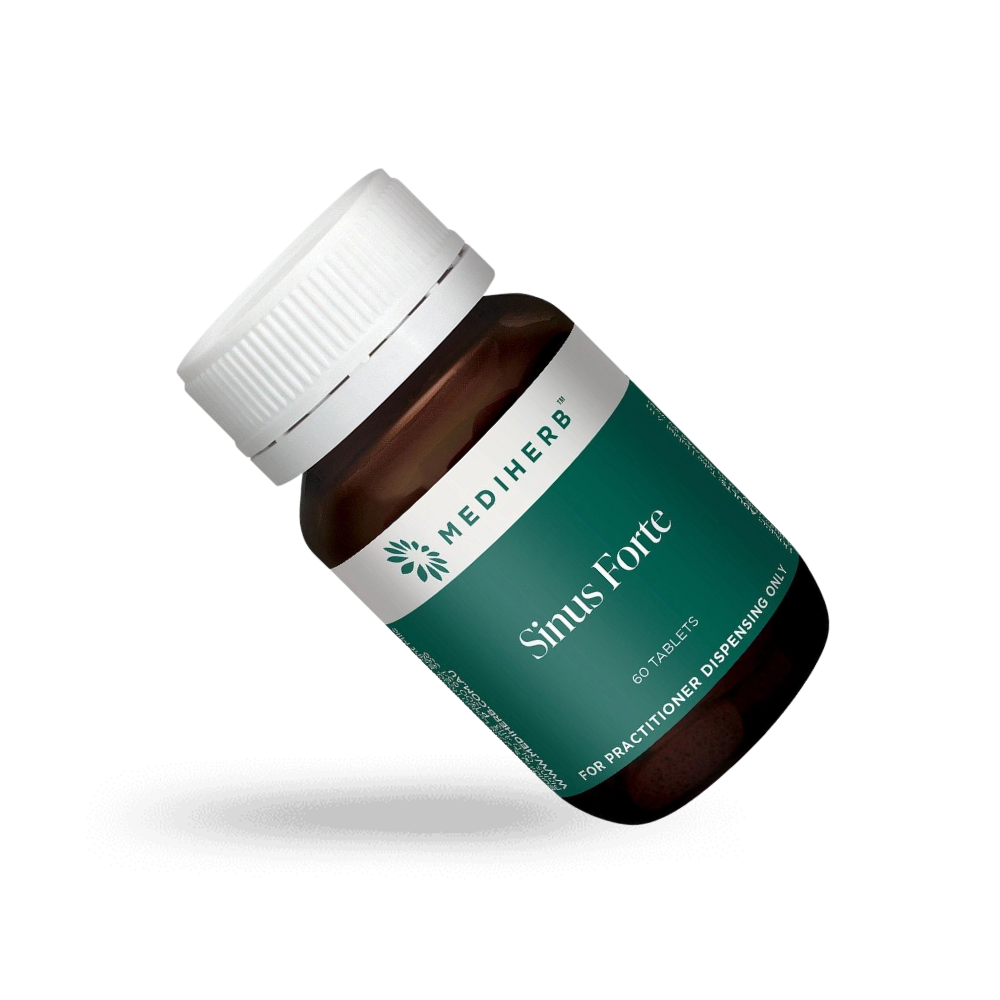Sinus Forte 60t
Couldn't load pickup availability
Description:
Sinus Forte: Natural Relief for Sinus Issues
Sinus Forte contains herbs traditionally used in Western herbal medicine: Eyebright to relieve symptoms of allergic rhinitis, sinusitis, and sneezing, and Echinacea purpurea root to support immune system health and relieve symptoms of mild upper respiratory tract infections.
For more natural solutions for sinus relief, read our article "Sinus Sense: Natural Solutions for Serenity and Relief."
Indications
- Eyebright is traditionally used in Western herbal medicine to:
- Reduce mild upper respiratory tract congestion
- Support healthy mucous membranes and relieve inflammation
- Relieve symptoms of allergic rhinitis, sinusitis, and hay fever such as sneezing
- Echinacea purpurea root is traditionally used in Western herbal medicine to support immune system health and relieve symptoms of mild upper respiratory tract infections.
- Golden Rod is traditionally used in Western herbal medicine to reduce excess mucous and promote sweating and perspiration.
Ingredients
| Each tablet contains: | Amount |
|---|---|
| Euphrasia officinalis (Eyebright) extract | 1.3 mL |
| Derived from herb dry | 650 mg |
| Solidago virgaurea (Golden Rod) extract | 1.3 mL |
| Derived from herb dry | 650 mg |
| Echinacea purpurea (Echinacea) extract | 740 microlitre |
| Derived from root dry | 370 mg |
| Hydrastis canadensis (Golden Seal) extract | 375 microlitre |
| Derived from root & rhizome dry | 125 mg |
| Capsicum annuum (Cayenne) extract | 30 microlitre |
| Derived from fruit dry | 10 mg |
Allergen Information
- No added: Gluten, soya bean, milk, lactose, peanuts, tree nuts, fish, crustacea, egg, sesame seeds, artificial sweeteners, colours, or flavours.
- Suitable for vegans and vegetarians.
Excipients
Calcium hydrogen phosphate dihydrate, colloidal anhydrous silica, hypromellose, magnesium stearate, microcrystalline cellulose, sodium starch glycollate.
Dose
Adults: Take 1 tablet 3-4 times daily.
Warnings
- Not to be used in children under two years of age without medical advice.
- Use with caution during pregnancy.
- The risk of allergic reaction to Echinacea is minimal, especially if root preparations are used since these are free of pollens.
- Echinacea is contraindicated for long-term use in patients taking immunosuppressant medication (e.g., transplant patients) - short-term therapy only is suggested in this instance.
- Caution is advised in patients receiving midazolam by injection.
- Caution in those taking theophylline as Cayenne may increase its absorption and bioavailability.
- Discontinue 7 days prior to general anaesthesia.
- If patient symptoms persist, seek additional professional advice.






















